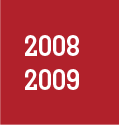Evaluation
Evaluation and Docimology Committee
The evaluation of education is governed by law 2008-19 of
February 25, 2008 on higher education
Evaluation
Evaluation and Docimology Committee
The evaluation of education is governed by law 2008-19 of
February 25, 2008 on higher education
Creation of the Evaluation Committee: December 2008
![]()





Pilot Experience : evaluation of the DCEM2: teaching at the faculty, training and exams (distribution, retrieval and analysis of thousands of inquiries). Heavy experience
Organization into three subcommittees :
The evaluation of training by students and supervisors
The training sites and the ECOSM are systematically evaluated by the students at each ECOSM exam. An anonymous inquiries is completed by the student. Referring supervisors are also invited to assess the students by a inquiries addressed to them.
An annual report is sent to the training Department.
A report, by specialty, is sent to all teachers in the specialty.
A report is published on the site after establishing an evaluation score. (A, B , C et D).
Evaluation of education :
The evaluation of teaching by students is heavy (daily, evaluation of all the courses received during the day…) and confronted us with a low involvement of the students.
In 2018-2019, the Evaluation Committee proposes, by ensuring the distribution and recovery of inquiries by its members, to evaluate a Theme or Certificate by year of study :
Each year, level 1 seminars are organized (entry of docimology) and level 2 seminars (docimological analysis) as well as seminars, at section level, for evaluation of the test question by question.
At each exam session, there are :